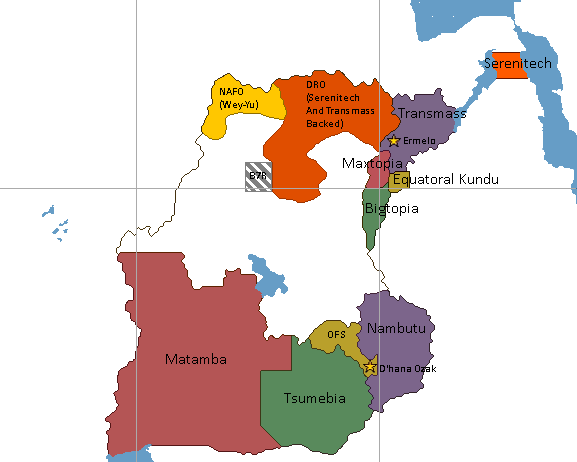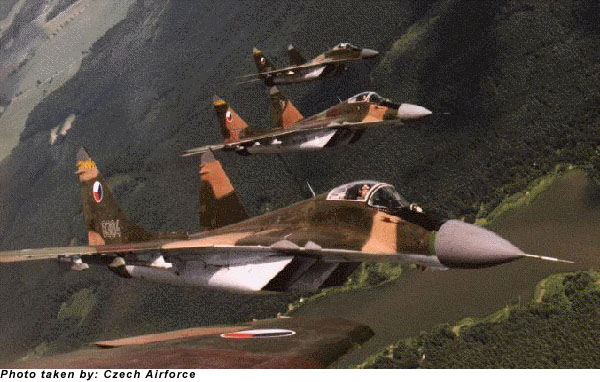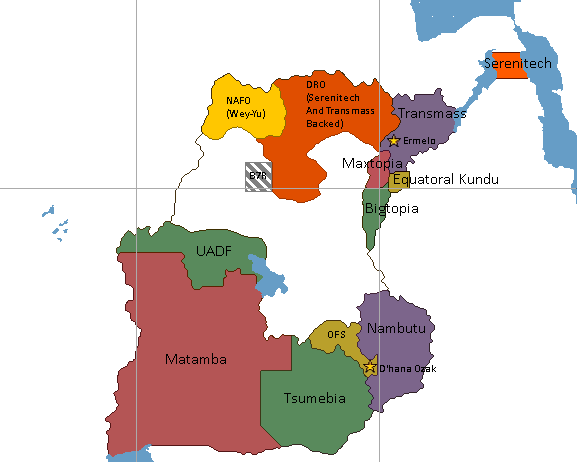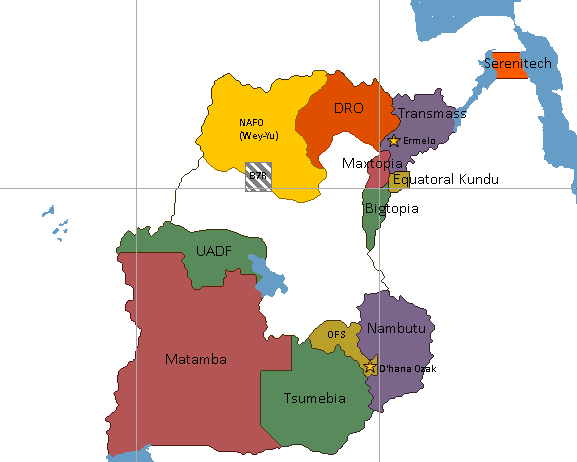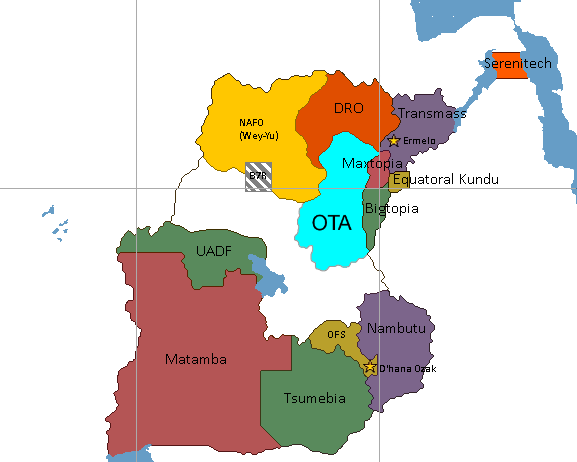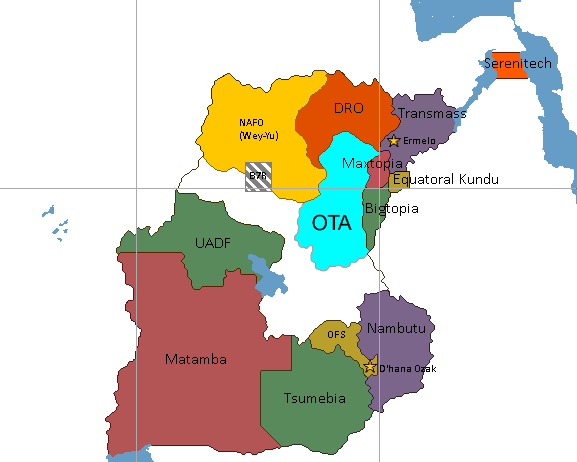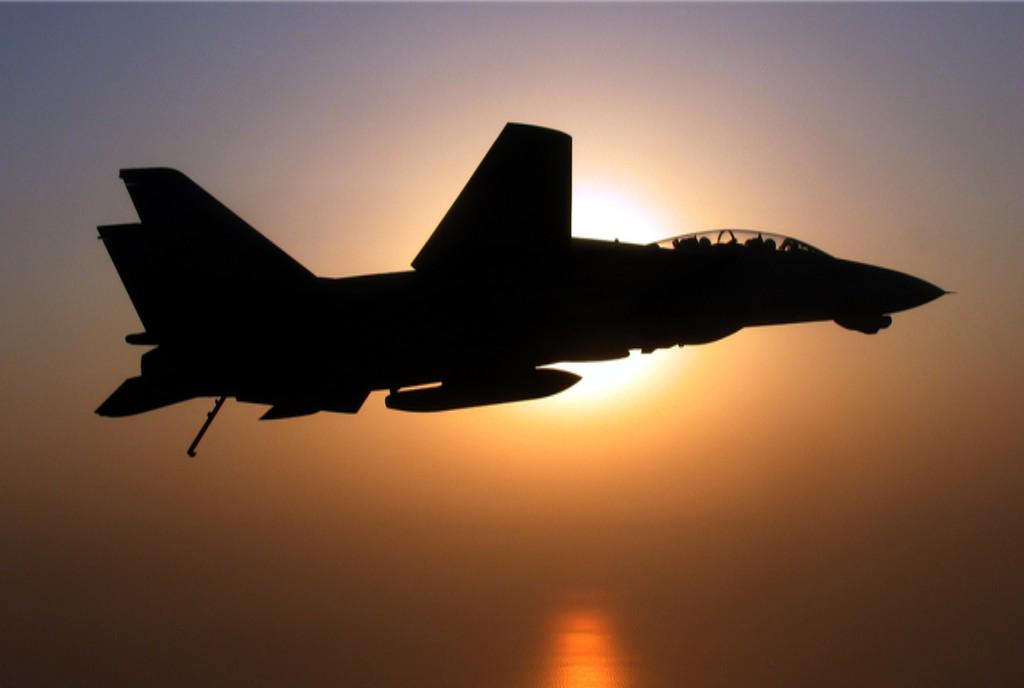DuVall, Rhodesia
Inside the Presidential office, Valintino Saar’bac and Marion Heleck were sitting on the desk, looking at a TV broadcasting. On screen were video tapes of heavily blurred scenes of honor killings inside the PDRA held territories. Interviews of Felind refugees have also been conducted, covering their abuse. Now photos of dead felinds have been publicized across multiple tabloids and websites.
“And now a video tape of a NAFO soldier as he uncovered what could be a mass grave of dead Felinds,” said the host, accompanied by the hostess. On screen was a Felind dressed in a NAFO uniform. A large blue tarp was being pulled back, revealing a pile of bodies of his own kind inside a pit. It was clearly visible that the journalist was recoiling from the stench.
“Excuse me, I need to go,” muttered the hostess as she began to leave her seat, her felidae paw covering her mouth.
“Please excuse my co-host,” responded the host, a human male as he looked into the camera. Continuing, “Not only has a mass grave been uncovered, but statements of refugees confirming the xenophobia, and surrendering men of the Democratic Republic of Oynenyua confirmed through witness statements that felinds were being specifically targeted, even when they surrendered. Which brave journalists in the region have recorded.”
The screen changed to another journalist who was standing next to a captured DRO soldier, a human male, his skin of a chocolate complexion and sweating from the heat. Behind him were two other NAFO soldiers ensuring his safety. On the bottom of the screen a little insertion said “Bazin Admassu Girma” which one could safely conclude was his name.
The journalist held a mic next to him and asked, “So, can you tell me what happened to your fellow Felinds when they came up against the Oynenyuan Tribal Alliance?”
He was nodding while speaking, “Yas, Yas. We foght dah OTA afdah dey ambused us. We surrenderd, sence we thought dey, outnumbed us. Afdah so much wer keeled.”
The female journalist brought the mic back to her asking, “And then what happened?”
After she moved the mic to him, awaiting a response, he said, “And den dey keeled dem. Dey keeled Sadiki, Samir, dey keeled dem all.” This time the prisoner was on the verge of breaking down.
“They were Felinds?”
He started breaking down crying on camera, “yas, yas. Dey wer. Dey wer gud cats.”
The video cut out, the screen now showing the host. Before another word could be said, the TV switched off. Val stood there with a remote in hand, while the President was still shocked. She knew what was going on, but the news only rammed home the point emotionally.
“So, enough evidence and media attention. Now we step in with an official statement, condemnation, and send in a serious force to put an end to this crap,” said the Vice President, looking at his higher up. Marion still sat on her desk, stumped on what to say. All she could muster was a nod while starting at the turned off television. She got up and sat on the chair behind the desk, beginning to write on a piece of paper.
After a minute, she looked up at her subordinate and said, “Mobilize the Carrier Strike Group, I want them fully briefed on the various factions and that they will be supporting NAFO. Prepare the Marines, and I want the media in here so I can give an official statement.”
“Will do Marion,” was the response from Val, he turned around to head out the office.
[hr]
An hour later…
Marion Heleck, President of the Federal Republic of Rhodesia, sat at her desk. Just opposite of her was a packed room of journalists and several cameras. Light stands were set up to provide the best image for the cameras. The red lights on the cameras went on, signifying that it was live.
The President breathed in deeply and then began, “My fellow Rhodesian, today our Armed Forces joined NAFO in airstrikes against separatist forces responsible for the brutality in the Oynenyuan region. We have acted with resolve for several reasons.”
"We act to protect thousands of innocent people in the Oynenyuan region from a mounting military offensive. We act to prevent ethnic cleansing and instability. We act to stand united with our ally for peace. By acting now, we are upholding our values, protecting our interests, and advancing the cause of peace.
Tonight I want to speak to you about the tragedy in the region and why it matters to Rhodesia that we work to end it. First, let me explain what it is we are responding to. The Oynenyuan region was formerly the Oynenyuan Free State, a dictatorship. For years it has led stability through rather unethical manners, however, rebellion has started. Now we are facing separatist factions with their own personal goals. Of the major factions, including the remants of the government, the National Army for a Free Oynenyua, the Democratic Republic of Oynenyua, and the People’s Democratic Republic of Abakamoso, instability and horrendous acts have been committed. Its people are mostly ethnic Felind and Human, along with some minorities.
In 2004 the Oynenyuan Free State’s leader, Hanif Mifsud, the same leader who led what is considered a brutal dictatorship, moved against the locals in the last decade, stripped the constitutional autonomy its people enjoyed, thus denying them their right to speak their language, run their schools, shape their daily lives. For years, Oynenyuans struggled peacefully to get their rights back. When Dictator Mifsud sent his troops and police to crush them, the struggle grew violent.
Now the various separatist factions started moving from village to village, shelling civilians and torching their houses. We’ve seen innocent people taken from their homes, forced to kneel in the dirt, and sprayed with bullets; Felind men dragged from their families, fathers and sons together, lined up and shot in cold blood. This is not war in the traditional sense. It is an attack by tanks and artillery on a largely defenseless people who wanted nothing more than to live their lives in peace.
Ending this tragedy is a moral imperative. It is also important to Rhodesia’s national interest. Take a look at the map. Oynenyua is a large place, but it sits on a major fault line between Transmass, Maxtopia, Bigtopia, Tsumebia, Nambutu, and Matamba. To the north, Genosha and it’s transitional government, a recent endeavor to stop the spread of terrorism. And all around Oynenyua there are other small countries struggling with their own economic and political challenges, countries that could be overwhelmed by a large, new wave of refugees. All the ingredients for a major war are there: ancient grievances, struggling regimes, and in the center of it all a dictator that has done nothing but start new wars and pour gasoline on the flames of ethnic and religious division.
We learned some lessons just a few years ago. The world did not act early enough to stop such atrocities, either. Children gunned down by snipers on their way to school, soccer fields and parks turned into cemeteries, countless people killed, not because of anything they have done but because of who they were. Two million Felinds became refugees. This ethnic cleansing in the heart of the continent to the south, in 2016, in our own time, testing our morals and our resolve.
Just this past Wednesday, Ambassador and one of the leaders of NAFO, Tomo Kenyat has begged us for official support. Over the past few months, we have secretly supplied NAFO with the capabilities to fight for what is right. We have supplied them with food for their people. We have supplied them with building materials to accept refugees. We have supplied them with the capability to provide a safe haven for the locals, to be free from such brutality and to be who they truly are.
Today we do what we must do to restore the peace. Our mission is clear: to demonstrate the seriousness of Rhodesia’s purpose so that the separatist leaders understand the imperative of reversing course; to deter an even bloodier offensive against innocent civilians in Oynenyua and, if necessary, to seriously damage the perpetrator’s capacity to harm the people.
Now, I want to be clear with you, there are risks in this military action, risks to our pilots and the people on the ground. It could decide to intensify the assault on the people being persecuted or to seek to harm us elsewhere. If it does, we will deliver a forceful response. I do not intend to put our troops in to fight a war, but I do intend to put an end to such egregious offenses against fellow beings.
Do our interests in the Oynenyuan region justify the dangers to our Armed Forces? I’ve thought long and hard about that question. I am convinced that the dangers of acting are far outweighed by the dangers of not actingdangers to defenseless people and to our national interests. If we were to allow this war to continue with no response, there would be many more massacres, tens of thousands more refugees, more victims crying out for revenge.
Right now our firmness is the only hope the people have to be able to live in their own country without having to fear for their own lives.
Imagine what would happen if we instead decided just to look the other way, as these people were massacred on our doorstep. That would discredit Rhodesia, the cornerstone of a free and just democracy. We are doing the right thing. We cannot let them down now. Let a fire burn here in this area, and the flames will spread. Eventually this could be drawn into a wider conflict, a war we would be forced to confront later, only at far greater risk and greater cost.
I have a responsibility as President to deal with problems such as this before they do permanent harm to our national interests. Rhodesia has a responsibility to stand with those who cry for help, when they are trying to save innocent lives and preserve peace, freedom, and stability. That is what we and NAFO are doing.
If we’ve learned anything from the century drawing to a close, it is that if Rhodesia is going to be prosperous and secure, we need a world that is prosperous, secure, undivided, and free. We need a world that is coming together, not falling apart, a world that shares our values and shares the burdens of leadership. That is the foundation on which the security of our children will depend.
It is this challenge that we are facing in Oynenyua. That is why we have acted nowbecause we care about saving innocent lives; because we have an interest in avoiding an even crueler and costlier war; and because our children and theirs need and deserve a peaceful, stable, free future. Our thoughts and prayers tonight must be with the men and women of our Armed Forces who are undertaking this mission for the sake of our values and our children’s future.
May God bless them, and may God bless Rhodesia."
[edit_reason]Forgot a Kosovo :P[/edit_reason]
